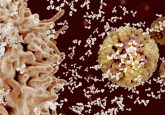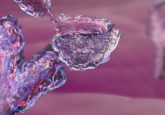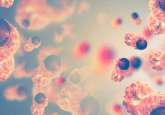Role of cellular prion protein in neurofibromatosis 2 tumor development uncovered
Researchers from the University of Plymouth and Plymouth Hospitals NHS Trust (UK) have uncovered the role of cellular prion protein (PrPC) in the development of neurofibromatosis 2 tumors, which may form as part of the hereditary condition neurofibromatosis Type 2 (NF2) or arise sporadically.
The results, published recently in Oncogene, demonstrate that overexpression of PrPC, caused by inactivation of the Merlin tumor suppressor protein encoded by the NF2 gene, contributes to tumor growth. These novel research findings could open up new avenues for potential treatment options for NF2, a condition with no targeted drug therapies and that predominantly affects the young.
NF2 disease is distinguished by the development of tumors of the nervous system, for instance, schwannomas, meningiomas and ependymomas and is caused by loss of function mutations in the NF2 gene coding for Merlin, a tumor suppressor. Merlin deficiency and/or NF2 mutations have been observed in other cancers such as in breast cancer, mesothelioma, glioblastoma and meningiomas happening independently of NF2. Therefore, it is believed that this novel research could have wide spread benefits for other cancers.
In healthy individuals, PrPC is typically present in the nervous system and physiological levels are neuroprotective effects in adults. However, overexpression of PrPC has been demonstrated in numerous cancers including breast cancer, prostate, gastric and glioblastoma.
The team of scientists developed an in vitro model consisting of human primary schwannoma cells, a hallmark for NF2 disease, from patients and control healthy schwann cells from donors to investigate the relationship between Merlin deficiency and tumor production. They discovered that PrPC expression is increased in schwannoma cells in comparison to healthy schwann cell and that this is due to Merlin deficiency.
Director of the study Sylwia Ammoun, University of Plymouth (UK), explained: “By understanding the relationship between overproduction of PrPC and Merlin deficiency in the development of schwannoma and meningioma, we have made a significant stride forward in the search for a drug treatment for NF2. This is a life-changing condition usually striking the young. That our discovery could also lead to hope for thousands of patients affected by other Merlin-deficient tumors, adds yet more to the significance and excitement of our findings.”
Presently, there are a number of pre-existing drugs which are utilized to control PrPC overproduction in conditions unrelated to NF2 such as Creufeldt-Jakob disease, a condition where PrPC is absent and a pathological form of prion protein is present, as well as Acute Myeloid Leukaemia and multiple myeloma. Reusing these drugs for NF2 disease could prove an effective therapy for patients; as safety testing for humans has already taken place for the original use of the drugs, this could accelerate the process to clinical studies.
Kieran Breen, Brain Tumour Research (UK), concluded: “Identifying a range of existing drugs which could be repurposed is an exciting approach by which we can speed up the progress of scientific discovery from the lab to the clinic, without compromising safety. Brain tumors kill more children and adults under the age of 40 than any other cancer but lack of research funding over decades has meant that current treatments lag well behind those of leukaemia and many other cancers. We have to play catch up to improve outcomes for patients and this study will bring us closer to identifying new and effective therapies.”
Sources:
L Provenzano, Y Ryan, D A Hilton et al. Cellular prion protein (PrPC) in the development of Merlin-deficient tumors. Oncogene. doi: 10.1038/onc.2017.200 (2017) (Epub ahead of print); www.plymouth.ac.uk/news/new-research-offers-hope-to-neuro-tumour-patients




